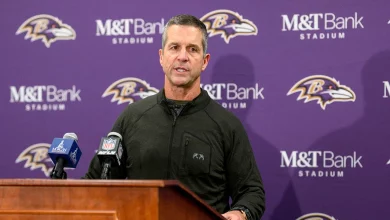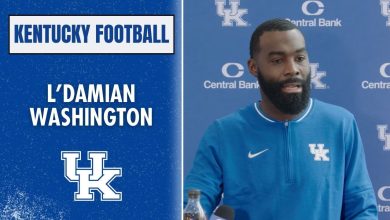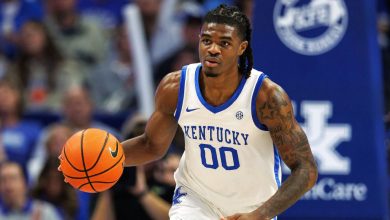Where things stand with Georgia football, transfer portal as first window closes

As college football continues to evolve, one of the most impactful changes in recent years has been the introduction of the transfer portal. This system allows athletes to enter a database and explore the opportunity to transfer to a different school without requiring a traditional release from their current program. The 2024-2025 offseason is a prime example of how the transfer portal is reshaping the landscape of college football, particularly for powerhouse programs like the University of Georgia. With the first transfer portal window officially closing, Georgia’s football program finds itself navigating a new era of roster management, roster building, and strategic adjustments.
For Georgia, one of the most successful college football programs in recent years, the portal has become both a tool for roster replenishment and a reflection of the program’s ability to manage its talent pipeline. As head coach Kirby Smart and his staff look ahead to the 2025 season, it’s crucial to assess how the transfer portal has shaped the current roster, the moves the Bulldogs have made, and what lies ahead as they aim to sustain their dominance in the SEC and national football landscape.
In this article, we’ll dive into where Georgia stands in the transfer portal as the first window closes, examining both the additions and departures, the program’s strategy, and what the future holds for Georgia football as the offseason continues to unfold.
1. The Transfer Portal and Georgia Football’s Evolution
Since its introduction in 2018, the transfer portal has dramatically changed how college football teams manage their rosters. The portal allows players to transfer without sitting out a season, provided they adhere to certain eligibility requirements. For programs like Georgia, which have seen success both on the field and in recruiting, the portal serves as a tool to fine-tune the roster, address weaknesses, and potentially add immediate contributors.
However, the transfer portal also presents challenges. While Georgia has been successful in using the portal to address specific needs, it also faces the delicate balance of managing its roster with an influx of young talent and established players. Recruiting, roster management, and player development have become more complex as a result of the transfer portal, and coaches must continuously adjust to maintain team chemistry, depth, and competitive advantage.
2. Key Departures from Georgia Football
As the first transfer portal window closed, several key players from Georgia’s roster announced their intentions to transfer to other programs. These departures reflect the competitive nature of Georgia’s program, where playing time and opportunities for development can be limited due to the depth of talent. Some of the notable players who entered the portal include:
A. Quarterback Competition and Departures
Quarterback is perhaps the most high-profile position in college football, and at Georgia, the position has seen intense competition over the years. In the wake of Stetson Bennett’s graduation, Georgia’s quarterback room became a critical focal point for the 2024-2025 season. Carson Beck, who started for Georgia in 2024, was expected to lead the team into the future. However, the emergence of highly touted recruits like Brock Vandagriff and Gunner Stockton created a fierce battle for playing time.
The quarterback competition, combined with the need to secure consistent playing time, led to the departure of several backup quarterbacks. Notably, Brock Vandagriff entered the transfer portal after a season in which he struggled to secure a consistent starting role. Vandagriff had been a highly rated recruit, but with Beck firmly entrenched as the starter, Vandagriff opted to explore opportunities at other programs where he could potentially get more playing time.
B. Running Back Departures
Georgia’s backfield has been a strength of the team in recent years, with players like Kenny McIntosh, Zamir White, and James Cook leading the way for the Bulldogs. However, with the program’s ongoing recruiting success, competition for playing time in the backfield has intensified. As a result, several running backs chose to enter the transfer portal in search of more consistent roles. One notable departure was Kendall Milton, who struggled to secure a starting spot behind a loaded depth chart.
Milton, along with others, made the decision to pursue playing time elsewhere, which allowed Georgia to continue developing its young talent while also making space for incoming recruits. The departure of experienced players in the backfield is always a challenge, but Georgia’s recruiting prowess has helped them build depth in the running back position, making this less of a long-term concern.
C. Wide Receiver and Defensive Departures
The wide receiver room at Georgia has also experienced a significant amount of turnover. With a talented group that includes players like Ladd McConkey and Arian Smith, the depth chart has been highly competitive. Some players, such as Adonai Mitchell and Marcus Rosemy-Jacksaint, entered the portal to seek greater opportunities in terms of both playing time and offensive involvement.
Defensively, Georgia’s consistently elite defense, which has been a hallmark of Kirby Smart’s program, saw a handful of departures, including several young defensive backs who were looking to secure starting roles at other programs. While the loss of experienced players always creates challenges, Georgia’s recruiting and player development under Smart have ensured the Bulldogs will continue to build on their defensive success.
3. Key Additions via the Transfer Portal
While Georgia saw several players depart, the Bulldogs also used the transfer portal to their advantage, bringing in new players who can make an immediate impact. These additions were aimed at filling specific gaps in the roster and ensuring that Georgia maintains its competitive edge in both the SEC and on the national stage.
A. Offensive Line Help
One of Georgia’s key additions through the transfer portal came in the form of offensive line reinforcements. The Bulldogs’ offensive line, while talented, faced questions about depth and the ability to replace key veterans. To address this need, Georgia brought in several experienced offensive linemen from other programs who can step in and compete for starting spots right away.
B. Secondary Reinforcements
Another area where Georgia targeted the portal was in the secondary. Despite its success, Georgia’s defensive backfield has experienced turnover, and the team sought to add experience and depth to its defensive unit. The Bulldogs brought in a couple of transfer cornerbacks and safeties, including a standout from a Power Five conference who can step in and contribute immediately. This move was crucial in keeping Georgia’s defense among the nation’s elite, as they face explosive offenses in the SEC and beyond.
C. Wide Receiver Depth
With the departures of key wide receivers, Georgia took the opportunity to add depth at the position. The Bulldogs secured a transfer from a top-tier program with experience in a high-powered offense. This addition helps to bolster Georgia’s wide receiving corps, which had been an area of focus for the team, as they look to balance a strong running game with an efficient passing attack.
4. What the Portal Says About Georgia’s Strategy
Kirby Smart and his staff have proven to be highly adept at leveraging the transfer portal in ways that align with the team’s overall strategy. The Bulldogs have consistently focused on building depth, particularly in positions like offensive line, secondary, and wide receiver. Georgia’s recruiting strategy continues to bring in high-level talent, and the transfer portal allows the program to fill in the gaps and address any immediate concerns that may arise.
A. Focus on Experience and Immediate Impact
In an era where college football is becoming more and more about winning now, Georgia’s focus in the transfer portal has often been on players who can make an immediate impact. Smart’s ability to balance recruiting with portal additions has given Georgia a distinct advantage in addressing areas of need while maintaining a championship-caliber roster.
B. Managing Depth and Competition
One of the most significant challenges of managing a program like Georgia is dealing with an abundance of talent and managing player expectations. The transfer portal has allowed Smart to maintain competitive depth while allowing players who might not see playing time to find opportunities elsewhere. This ability to manage competition and develop talent is a testament to the strong culture that has been cultivated within Georgia’s program.
C. Maintaining National Championship Contender Status
Georgia’s continued success in recruiting and using the transfer portal underscores the program’s ability to remain at the top of the college football world. With the addition of immediate-impact players and the steady development of young talent, the Bulldogs are poised to remain national championship contenders in the years to come.
5. Looking Ahead: The Future of Georgia Football and the Transfer Portal
As the first transfer portal window closes, Georgia finds itself in a strong position, having addressed several key needs while continuing to develop its young talent. The Bulldogs’ roster is a mix of experienced players, young stars, and transfer additions that provide the necessary balance for a championship-caliber team.
However, the transfer portal will continue to be a critical tool for Georgia as the program looks ahead to the 2025 season and beyond. With the SEC and national landscape continuing to evolve, Smart and his staff will need to remain agile, consistently evaluating the portal to ensure they stay ahead of the competition. Whether it’s addressing depth, filling immediate needs, or simply adding talent to sustain long-term success, the transfer portal will remain a key part of Georgia football’s strategy.
As the offseason continues, Georgia’s ability to manage the transfer portal will play a pivotal role in maintaining its dominance as one of the nation’s premier programs. The Bulldogs are well-positioned to continue their ascent, with a talented roster and a coaching staff that understands how to maximize the potential of both incoming and outgoing players. The first transfer portal window may have closed, but for Georgia football, the journey toward a continued championship run is far from over.









